|
Goodbye Ninian Park
A last look at Cardiff's long serving stadium
(Photos ©urban75, 26th December 2009)
Named after Lt.-Col. Lord Ninian Edward Crichton-Stuart (15 May 1883 - 2 October 1915), son of the moneybags 3rd Marquess of Bute, Ninian Park served as the home of the mighty Cardiff City from 1910 to 25th April 2009.
A proper, old fashioned ground much loved by generations of Cardiff City fans, Ninian Park was situated at Leckwith Road, Cardiff and featured large floodlights in each corner and large covered stands, each reflecting the ground's long history.
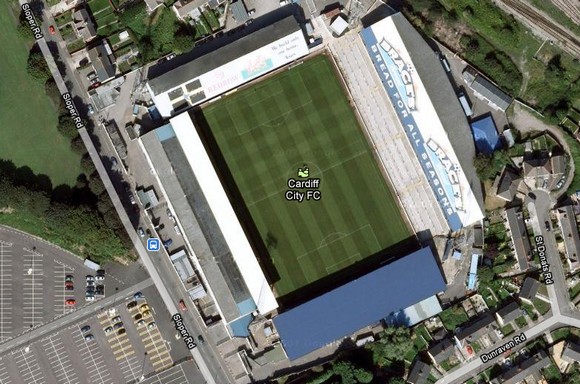
Ninian Park from the air, courtesy of Google maps.
The stadium had witnessed some glorious (and catastrophic) sights over the decades - numerous Wales international matches had been hosted at the stadium, as well as other notable events including the show-jumping championships fo the 1958 British Empire and Commonwealth Games, a rally by Pope John Paul II in 1982 and - most impressively of all - a concert by Bob Marley, with his Rastaman Vibration Tour spreading the One Love over Ninian Park on 19 June 1976.
The record attendance for the stadium was a massive 62,634 for the Wales-England game on the 17th October 1959, while Cardiff City's biggest gate was 57,893 for the visit by Arsenal on April 22nd 1953.
In true Cardiff style, we managed to get stuffed on our last home game at Ninian Park.
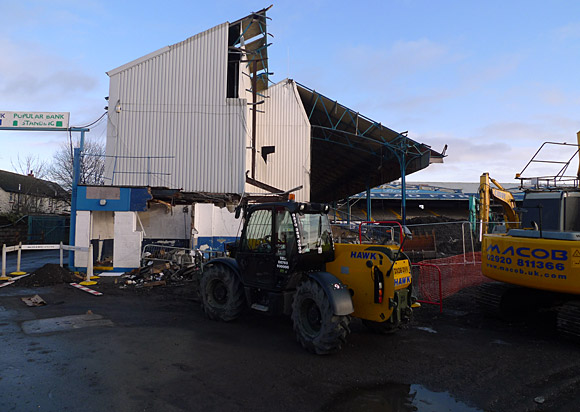
The Canton Stand starts getting pulled down. Known as the 'Spar Family Stand' at the end, the all-seater area was fully covered, and also housed the club ticket office on the ground floor.
Famously, a row of half completed executive boxes and hospitality areas remained unfinished for nearly twenty years, with work starting in the early 1980s and not being completed until 2001 due to tricky finances.
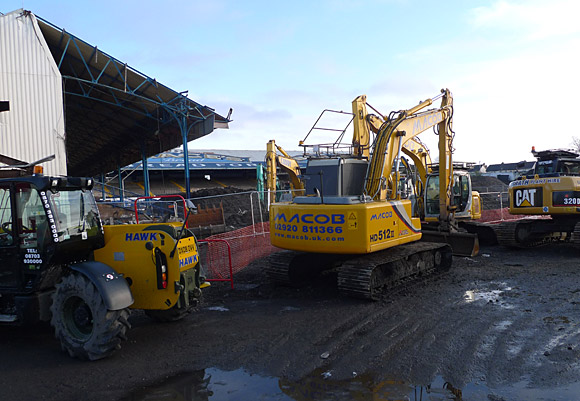
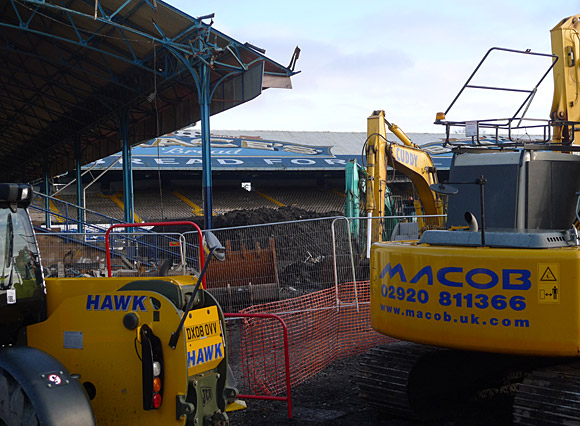
Canton stamd with the Bob Bank in the background.
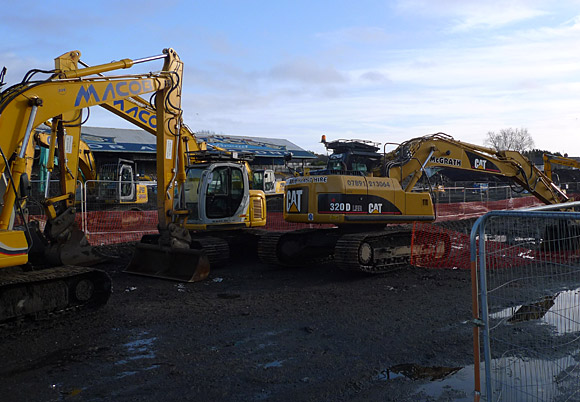
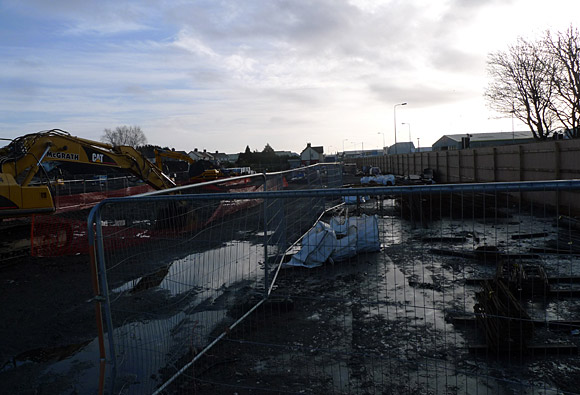
The Grandstand has now completely gone. Once a two-tier, all-seater stand, the Grandstand featured old-fashioned wooden seats in the upper tier, and modern plastic seating in the lower tier, with the roofing being extended outwards towards the pitch in the Rick Wright era.
The stand housed the player dressing rooms, pitch tunnel, V.I.P. area and the press/media benches.

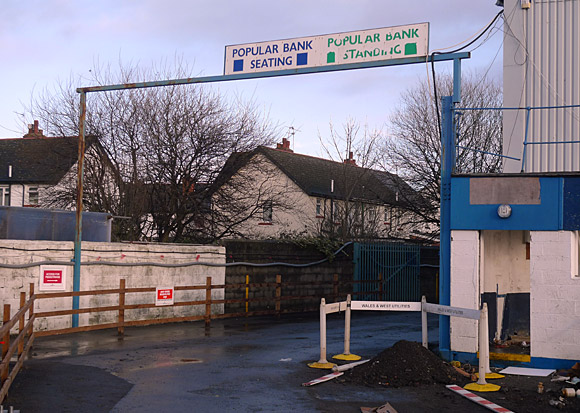
Entrance to the Bob Bank (Popular Bank)) - I can't remember hw many times I must have walked along here.
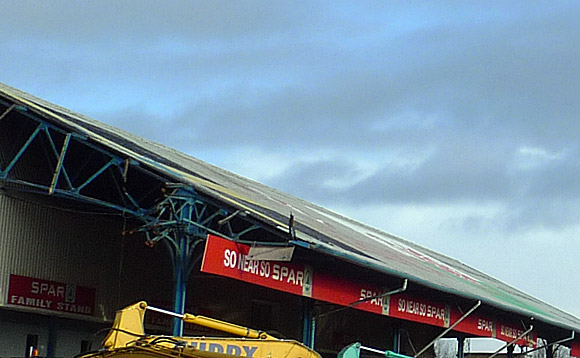
Close up of the half demolished Canton Stand roof.
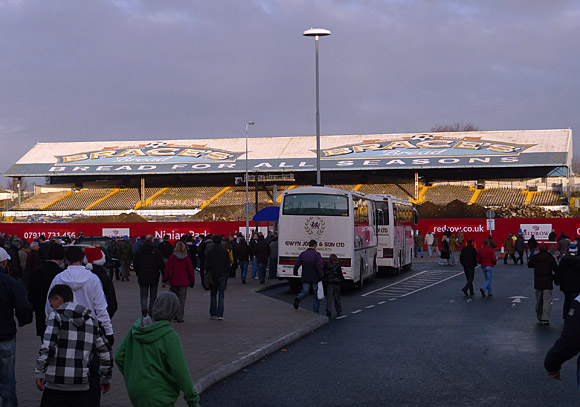
Looking across from the car park of the new stadium, you can see the Bob Bank in all its glory. My home for several decades!
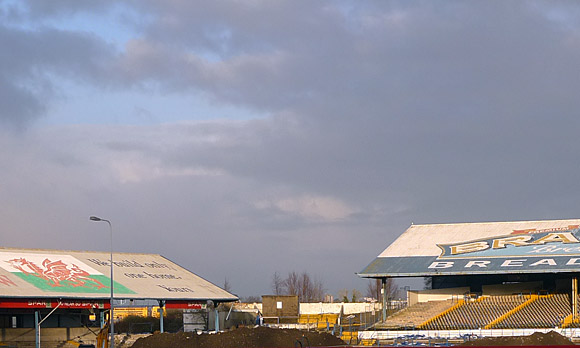
Corner of Canton Stand and Bob Bank.
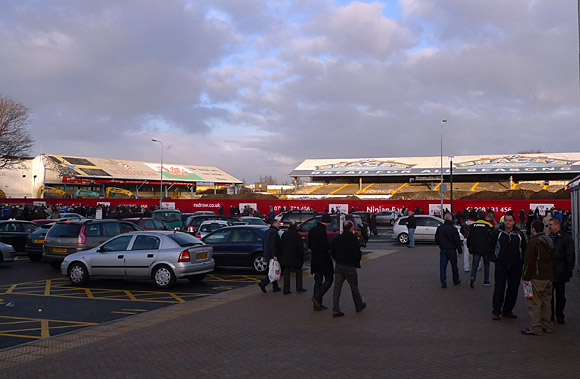
View from the new car park.

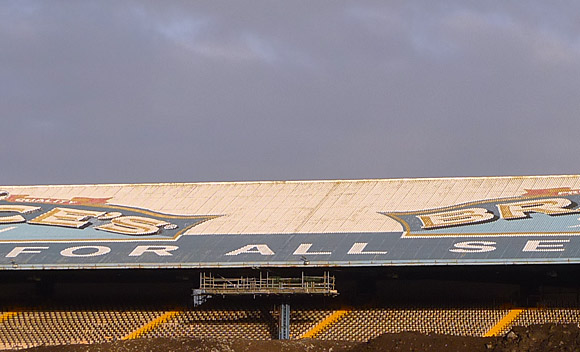
Bob Bank roof. An advert for Captain Morgan Rum remained on this roof for forty years, despite attempts to paint over it in the early 1980's. This made it the longest-serving advert in any British football ground!
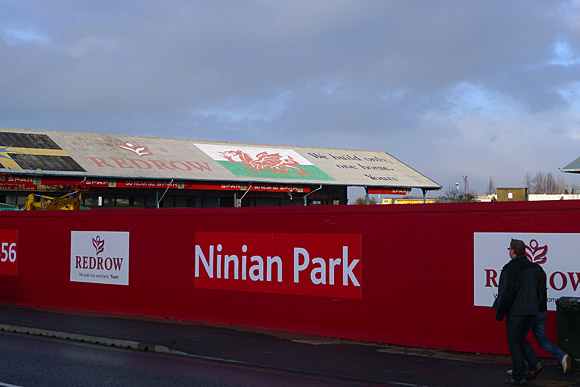
A final look at the stadium.
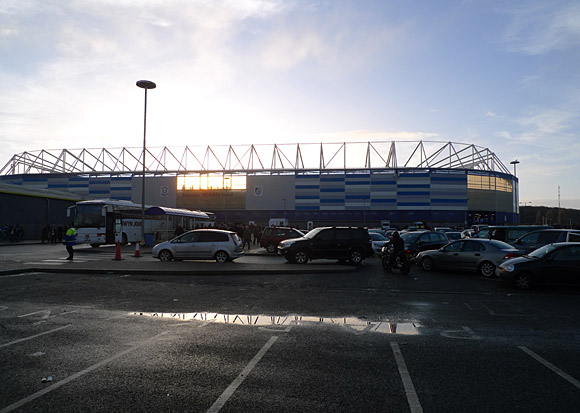
Directly opposite is Cardiff's shiny, new all-seater stadium.
It offers vastly improved facilities and better views - but will it ever capture the character and atmosphere of a passionate night on the terraces of Ninian Park?

« back to Cardiff City homepage
|

